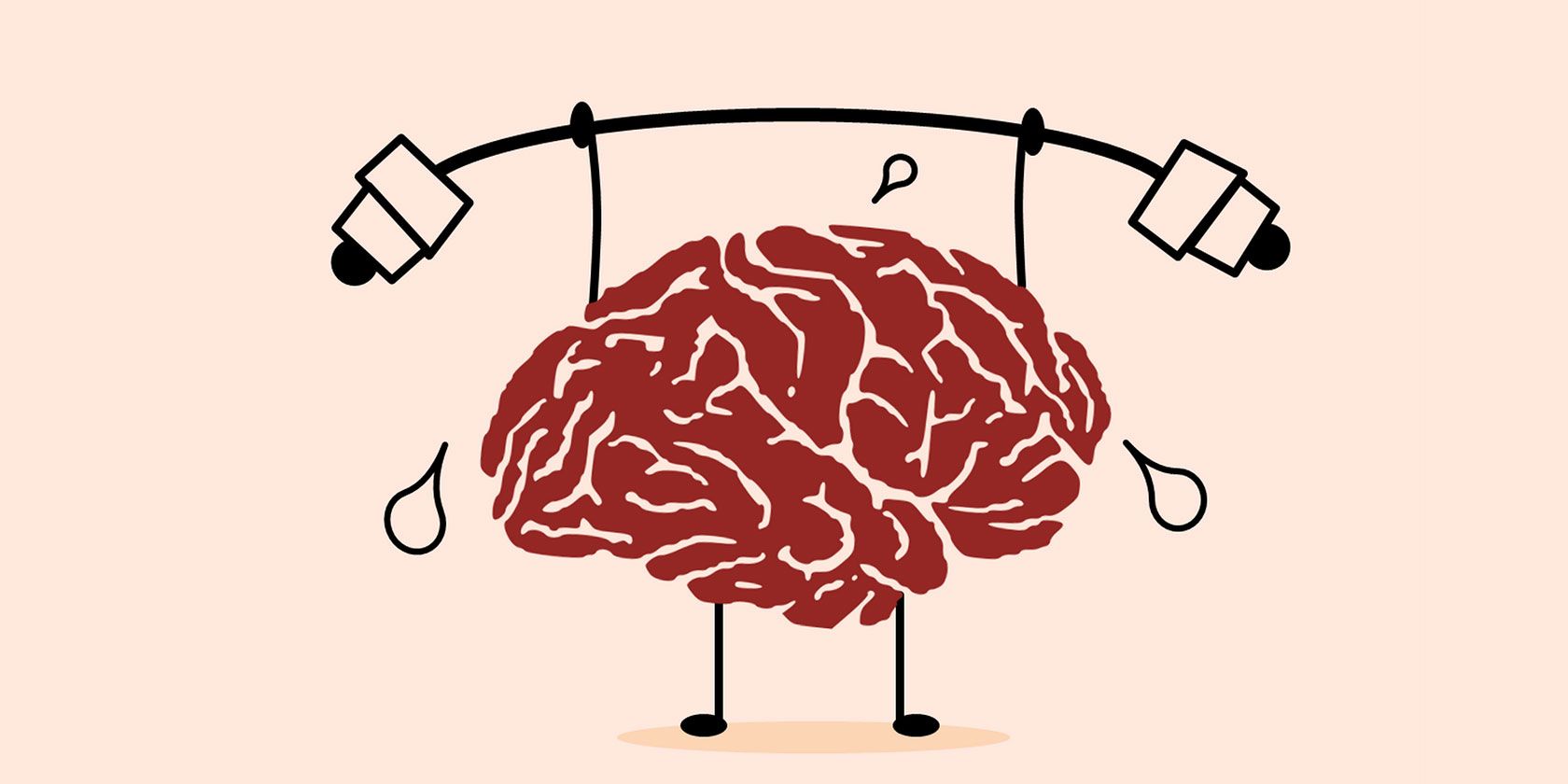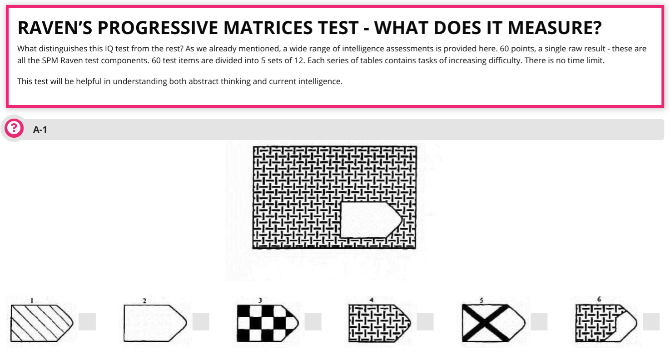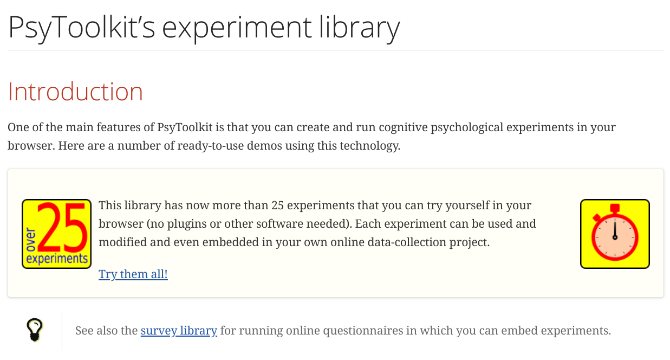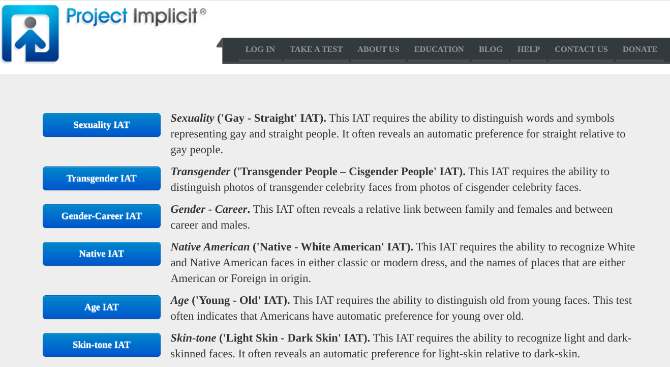Are you dumb or are you smart? These free online cognitive tests and experiments will calculate your brainpower compared to the average person.
There are a ton of online IQ tests, but there is more to smarts than intelligence alone. Some of these tests are completely non-verbal. Others have been around since the 1930s and are still relevant. Some are used by the NFL, and some will even find your inherent biases. And they're all free.
Disclaimer: While these are popular psychological tests, don't take the results too seriously. If you think you need a cognitive test to check any degeneration in your mental faculties, seek professional medical help rather than online tests.
1. Beat the Wonderlic (Web): Free Online Wonderlic Timed Test
The Wonderlic Test is a common cognitive test used in a number of job interviews like business, school, nursing, mechanics, product management, and even the NFL. You can take a timed Wonderlic test online for free to see how you'd do.
The 12-minute timed test has multiple-choice answers for its 50 questions. The questions span a variety of brain tests like memory, mathematics, linear logic, lateral thinking, and other cognitive abilities. The website encourages you not to use a calculator because one won't be provided in a real-life Wonderlic test either.
At the end of the 12-minute timer, the test ends and you'll get your score along with a chart. The chart notes how well you did, but I'd advise you to take that with a pinch of salt. Beat The Wonderlic sells courses on how to get better at the test, so it's in their best interest to make you believe you aren't doing as well as you might be. If you're interested in something like that, check how brain-training games can help you.
2. Raven Matrices Test (Web): IQ Test Without Language or Math
Many IQ tests require a good understanding of the English language or mathematical skills. But what about good old logic and common sense? Aren't those more handy faculties to have for problem solving? Dr. John Raven thought so, and set about creating a completely non-verbal IQ test.
The Raven Matrices Test shows you a series of shapes and symbols, with one missing part. By using the rest as clues, you have to find out the missing shape from the six options given to you. It gets progressively more difficult as you go through the various levels from A to E.
Each level has 12 questions in this version by Psycho-Tests, based on the original Raven suggestions. It is a non-timed test so you can take as long as you need. In the end, it will tell you your IQ based on your answers, and what percentile of the global population you rank in.
3. Stroop Test (Web): Test Your Attention and Response Time
In 1930, John Ridley Stroop discovered a phenomenon called "interference" and formed a test for it, called the Stroop Test. Since then, mental health experts applied this test in a variety of brain scans to check how attentive and responsive one is.
In the main Stroop Test, you are shown a series of color words (red, blue, green, yellow) written in different colors. Your objective is to name the color while ignoring the letters it spells out. Press R, G, B, or Y on the keyboard as quickly as possible, giving the name of the color. It is a lot more difficult than it sounds.
The Stroop Test indicates how quickly you can stop your natural response to a stimulus (like reading) and switch to a different task. You can take a few different versions of the test online:
- Hanover College presents a free, customizable Stroop Test to try different difficulties.
- PsyToolKit will calculate your incongruent to congruent response time.
- The Washington University has the original as well as three different variants, where instead of colors, you have to match numbers, directions, or animals. These are great for children too.
4. PsyToolkit (Web): Try 25 Free Cognitive Psychological Experiments
Speaking of PsyToolkit, you must visit this great resource to understand and try online demonstrations of 25 free cognitive tests. It's one of the few websites that doesn't need Adobe Flash to run these.
It hosts cool implementations of several N-back task tests to see how good your short term memory is. You'll also find other popular psychological tests like the Iowa Gambling Task, Deary-Liewald Task, and Wisconsin Card Sorting Task.
If you don't know what these mean or what they measure, don't worry, PsyToolkit will guide you through each step. It has a clear description of the experiment, how to take it, and what the measures indicate. Psychology students can even use the website's resources and the code to create their own versions for free.
5. Project Implicit (Web): Test Your Cognitive Biases or Automatic Reactions
It's natural and human to build biases. Social behavior and cues around us condition our brain into developing quick responses and automatic reactions, which might be incorrect. Researchers at Harvard started Project Implicit to calculate your inherent biases, in a series of free online tests.
Largely, Project Implicit tests two types of biases: social and health. Among the social biases, pick your country of origin or residence before you begin, as the cues and tests differ by nation. Here are a few examples of both social and health tests:
- COVID-19 bias: Do you associate COVID-19 with danger and think the precautions are reasonable?
- Depression test: Do you implicitly associate yourself with being happy or sad?
- Weight IAT: Do you have an automatic preference for thin people over fat people?
- Race and Skin-tone IATs: Do you have an automatic preference for white/light skin over black/dark skin?
There are many more like this at the Project Implicit website. Most tests require a mouse or a keyboard, but you can also take some tests with a touchscreen device. Typically, each test takes about 8-10 minutes of your time, if you pay attention.
More Brain-Training and Analyzing!
There are a few other brain analysis apps that will satiate your curiosity about the inner workings of your mind. Cambridge Brain Sciences offers a free online "brain health" analysis, while Brain Errors shows how your mind can make simple errors. For this and more, check these brain training and analyzing apps.






